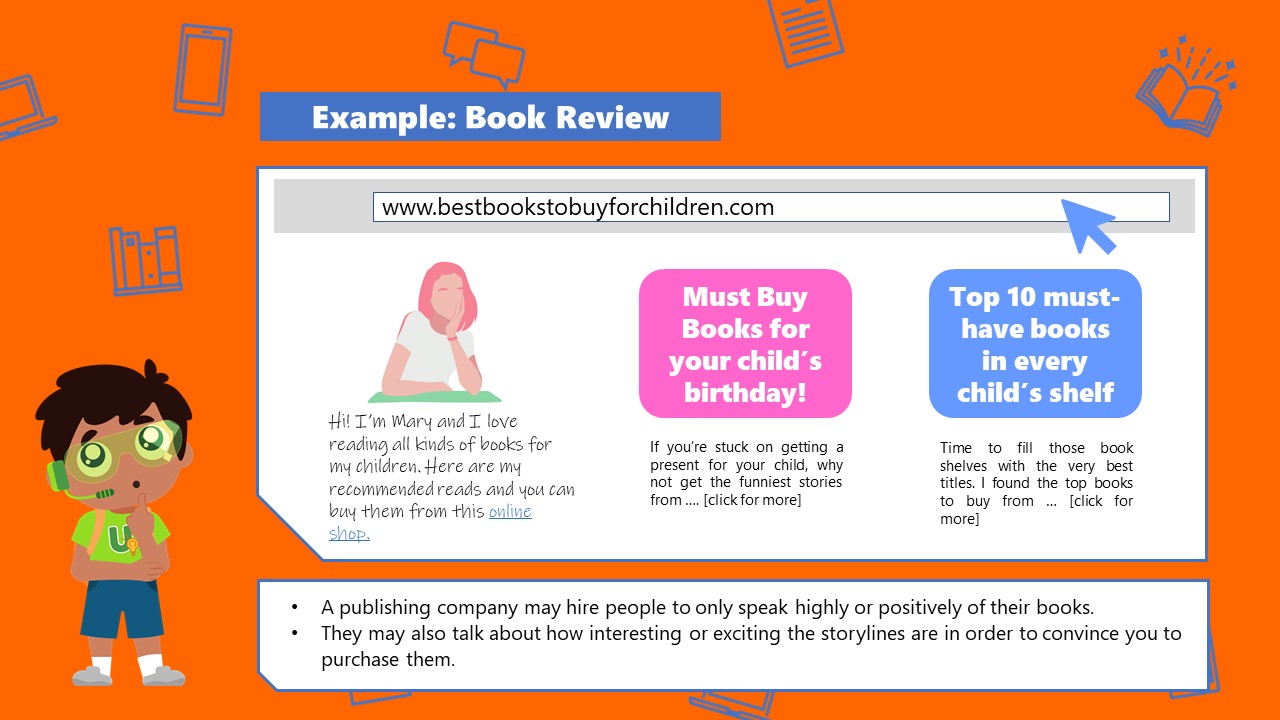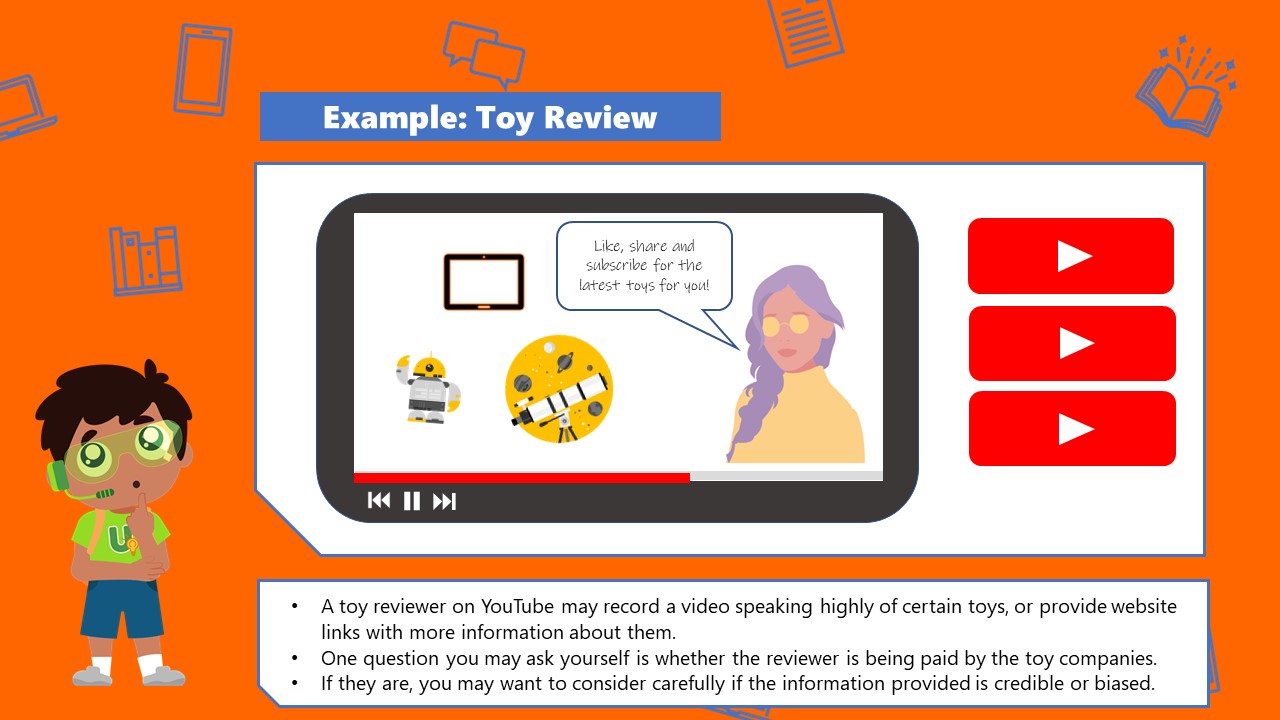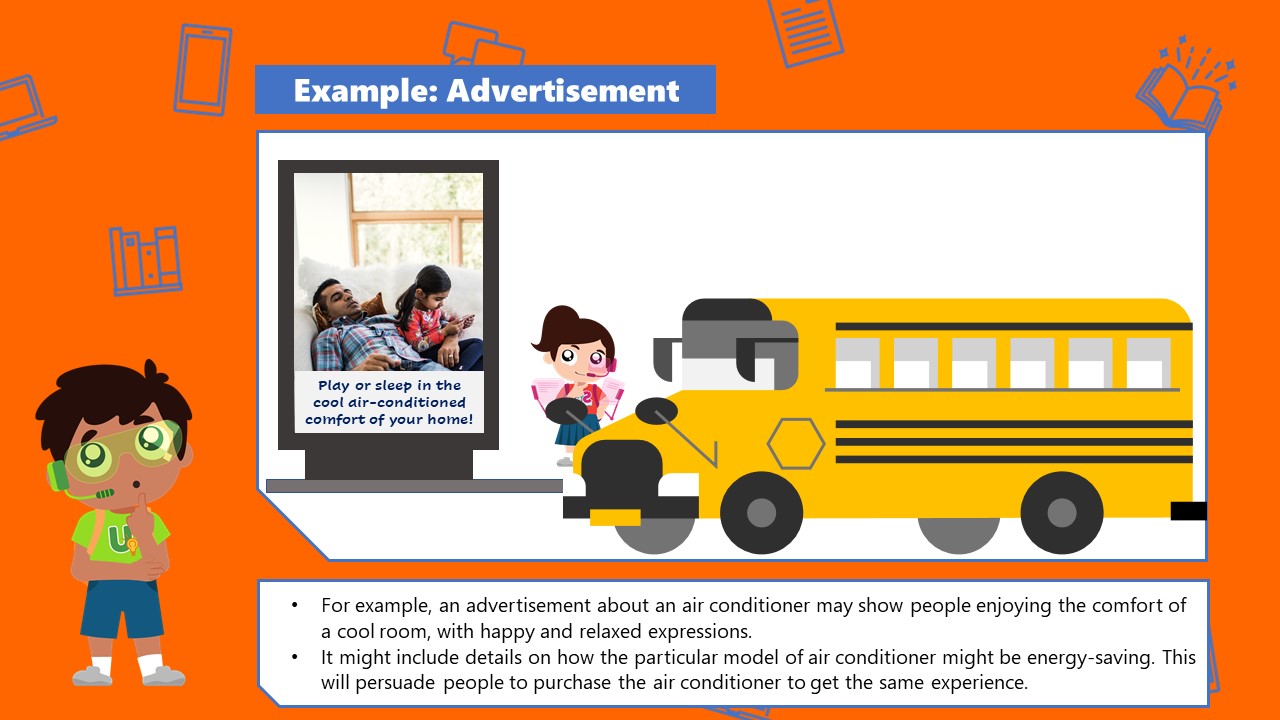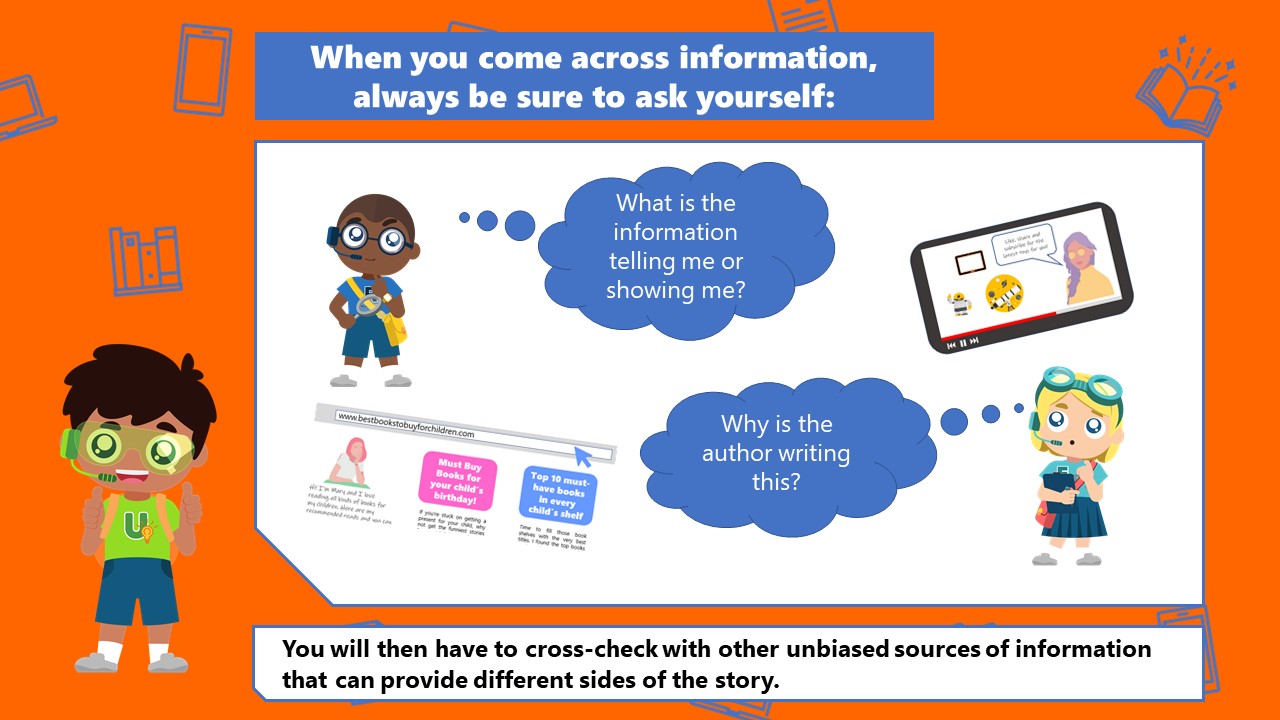What Intentions Can An Author Have?
What Intentions Can An Author Have?
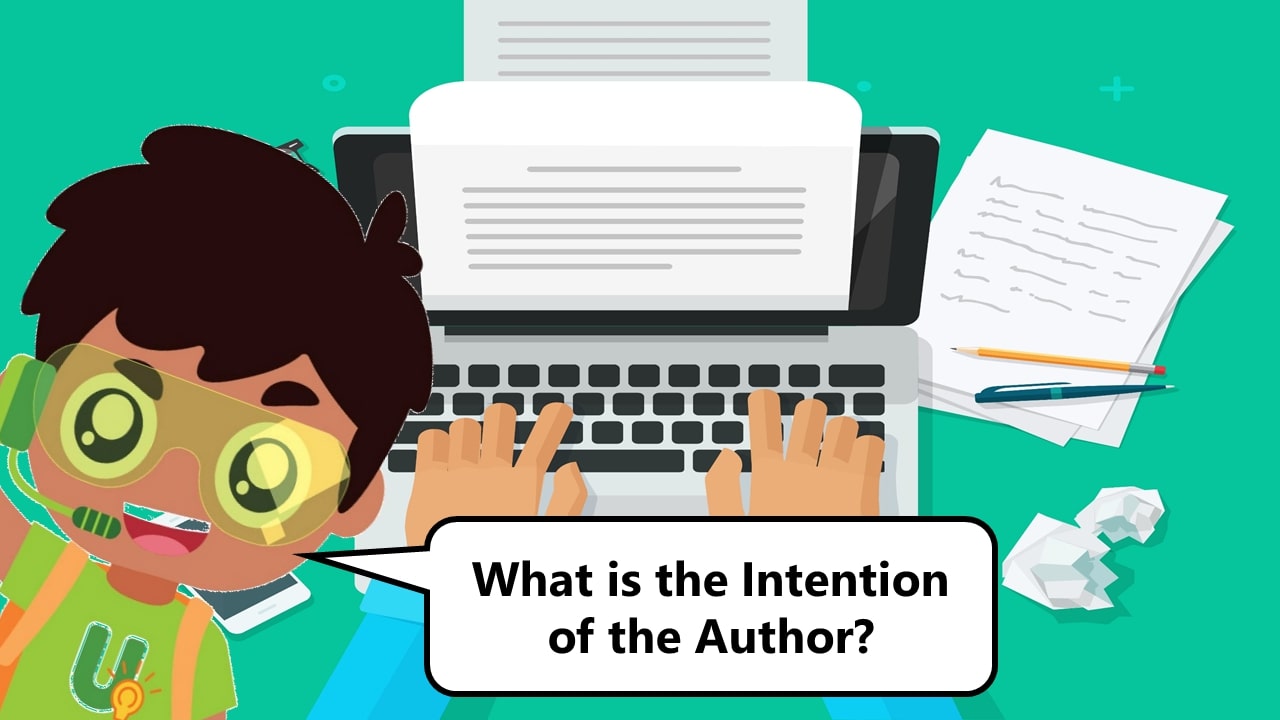
Hi everyone, it’s me again, Understanding Upin! Did you try out my previous quiz on differentiating between facts and opinions? We will now learn about what intentions authors may have when they write. Usually, these intentions are to:
-
inform
-
entertain
-
persuade
If the writing is one-sided, the author intends to persuade you to believe something and this may affect the credibility of information.
Articles and Reviews
When writing articles, authors may use persuasive language to influence you to believe in certain messages.
Advertisements
You would definitely have come across advertisements, be it on the internet, television, brochures or even when you are waiting for your bus!
Their aim is to persuade you to buy whatever product or service they are advertising. This can be done by making the images of the product look attractive or showing you the reactions of people using them.
Sometimes, advertisements are not so obvious, for example, in the form of a sponsored article. Sponsored articles mean the authors are being paid to write a review (usually positively) about a product.
One example is a magazine article featuring an educational game software that has been beneficial for children. The article may have been sponsored by the game company to persuade parents to buy it for their children.
Now that you know more about how to identify the intentions of the author, try out this quiz [HERE].


